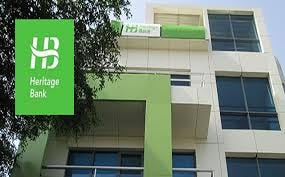
The Central Bank of Nigeria (CBN) revoked the banking license of Heritage Bank Plc on June 3, 2024, citing a breach of Section 12(1) of the BOFIA 2020, which could have jeopardized financial stability. To safeguard depositors’ funds, the Nigeria Deposit Insurance Corporation (NDIC) immediately assumed the role of liquidator as mandated by BOFIA Section 12(2).
NDIC swiftly initiated the liquidation process, prioritizing the verification and repayment of insured deposits to Heritage Bank depositors. As per the corporation’s statement, “In accordance with Section 55 sub-section 1 & 2 of the NDIC Act 2023, the Corporation has commenced liquidation process of the failed bank with immediate verification and payment of insured deposits to the bank depositors.”
An encouraging development for depositors was the NDIC’s upward revision of the maximum deposit insurance coverage for Deposit Money Banks (DMBs) in April 2024. This increase, from N500,000 (set in 2016) to N5 million, significantly benefitted bank depositors.
At the time, NDIC’s MD/CEO, Mr Bello Hassan, explained that “the new coverage for DMBs now covers 98.98% of total depositors.” Notably, for Heritage Bank, this ratio appeared even higher, with 99.9% of depositors having balances below the N5 million insured limit. This could indicate that a smaller proportion of depositors entrusted substantial sums to Heritage Bank. It was also revealed by Mr Hassan, as reported by ThisDay newspaper, that only 4,000 depositors had over N5 million in their accounts.
Deposit insurance in licensed institutions applies per depositor (entity), not per account. This means that if you have numerous accounts in one bank, your insurance covers the combined total in that bank, not each individual account. Exceptions exist for joint accounts and business accounts held by the same depositor at the same bank. However, it’s crucial to familiarize yourself with the NDIC’s terms and conditions.
Here’s how the NDIC is facilitating the return of depositors’ funds:
- Utilizing the unique Bank Verification Number (BVN), which links multiple bank accounts to a single depositor, the NDIC will distribute insured funds to alternative accounts up to the insured amount. Given that most Nigerians have more than two active accounts, this approach should work for most depositors. However, the selection process for which alternative account to use in cases with three or more BVN-linked accounts remains unclear.
Initial reports suggest this process has been smooth for many Nigerians. Social media users like @toyinabdulrazaq expressed delight, stating, “…I just got a credit alert into one of my accounts from NDIC for my balance at Heritage Bank. No noise, no documentation/verification hassles…” Another satisfied depositor, Adedeji Olowe on LinkedIn, reported receiving his trapped funds, stating, “I cried when I lost my hard-earned N10,000 to the Heritage Bank Plc debacle. But somehow, Nigeria Deposit Insurance Corporation found my other bank account and paid me.”
For depositors exceeding the insured amount, “liquidation dividend upon realization of the bank’s assets and recovery of debts owed to the bank” will be paid, as promised by the NDIC CEO. As of the first quarter of 2024, Heritage Bank had a troubled loan portfolio of about N700 billion, with most loans considered lost or doubtful.
An interesting question for insurance professionals is whether depositors with over N5 million will receive the N5 million cap first, with the remaining balance recoverable upon asset liquidation. While a positive outcome would be ideal, clarification is needed.
Depositors without alternative accounts can file a claim with details provided on the NDIC claims webpage. Alternatively, they can visit their nearest Heritage Bank branch with proof of account ownership (bank statement), valid identification (National ID card), their BVN, and a designated account to receive the funds.
The importance of deposit insurance is often underestimated, even in developed economies like the United States (refer to the Synapse, Evolve Bank & Trust case). The NDIC’s prompt action, achieved through multi-stakeholder collaboration and clear communication, has garnered praise from Nigerian bank customers.
The revocation of Heritage Bank’s license might not have surprised analysts and insiders, but for the general public, it was likely a shock, considering they weren’t among the three banks whose management teams were dissolved by the CBN in January 2024. It’s important to remember that a dissolved management team doesn’t necessarily imply a revoked license. The CBN officially announces revoked licenses through their verified social media channels (e.g., @cenbank) or their secure website
